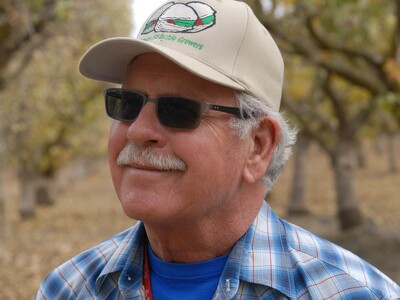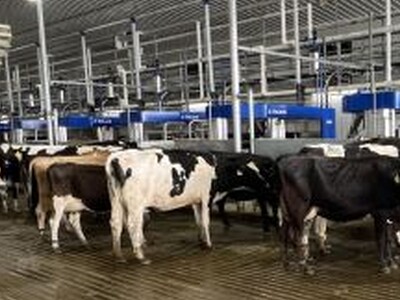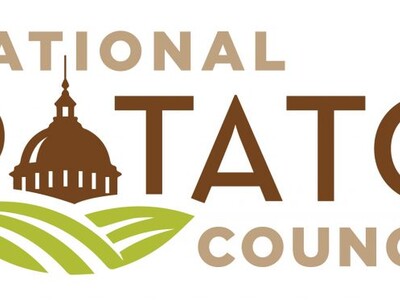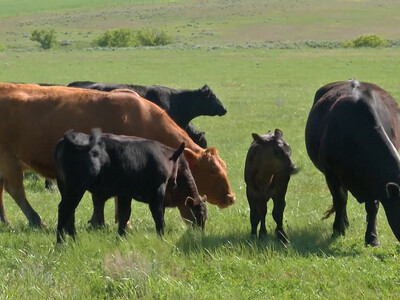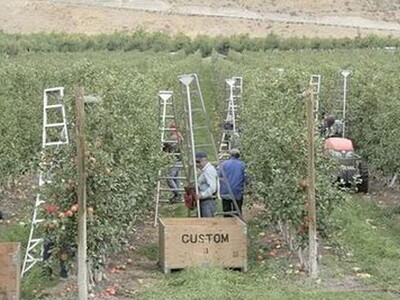National Trading Contest
University of Idaho students converted a class exercise into cash with a second-place finish in a national simulated trading contest that drew 726 teams from 233 schools across 49 states.
The agricultural economics students on the Cattle Drive team were enrolled in College of Busines & Economics professor Dr.Terry Grieb’s introduction to market trading and funded trader seminar classes. His students entered the online brokerage’s think-or-swim Challenge sponsored by TD Ameritrade, which gives teams $500,000 in virtual money to trade options contracts on a range of equities.
“This is a great example of students participating in an experiential learning program that they took to heart and in the end got amazing results,” Grieb said. “That is entirely to their credit, and it shows how strong the educational component can be for dedicated students like Cattle Drive.”
“That is absolutely awesome! Congratulations Cattle Drive - we are incredibly proud of you,” said Cathy Roheim, head of the Department of Agricultural Economics and Rural Sociology in the College of Agricultural and Life Sciences.
The team rang up a 124 percent return during the four-week contest, turning the original stake into more than $1.1 million — on paper. The UI students won $20,000 for the university and each won $2,000 in a TD Ameritrade brokerage account and an iPad.
The team of agricultural economics students included senior Brett Wilder of Meridian; grad student Joseph “Cody” Cook of Idaho Falls; senior Blake Michler of Elgin, Oregon; and junior Austin O’Neill of Stanwood, Washington.
Wilder is a funded trader for the Barker Capital Management and Trading Program and helps manage several portfolios that include agricultural commodities and energy totaling nearly $500,000 in assets. The program was funded by Rotchford “Rotchy” Barker, who graduated from UI and went on to fame at the Chicago Board of Trade.
Grieb is director of the Barker program, which is based in the College of Business and Economics. The program recently expanded to include an emphasis on agricultural commodity risk management led by the College of Agricultural and Life Sciences.
“We are proud that our students did so well in the competition,” said Ekaterina Vorotnikova, assistant professor of agricultural economics and Barker program associate director. “Understanding markets is critical to the success of agricultural enterprises today from family farms to global agribusinesses.”
“What I think set Cattle Drive apart was the communication, the teamwork, discipline, and ability to control one’s own emotions – very important qualities for successful traders,” Vorotnikova said. “They had a structure of everybody working hard and effectively. They were all putting in time, they all had a role to play and they made our dream of winning in this competition a reality.”
The UI team led the field during most of the competition, falling into second place to the winning team from the University of North Carolina Chapel Hill during the last 30 minutes of trading.
An early trade of Alcoa stock put the team on its way, Wilder said. With half of the contest remaining, the team’s returns were 35 percent ahead of any other competitors. At that point, the UI students took a conservative approach to preserve a top-three finish, which would put them in the money.
“Our strategy was that since we were ahead, other teams would have to make riskier trades to try to make up the difference. We leveraged our position so we didn’t have to make risky trades, and we could at least get second,” Cook said.
Team members got up at 5:30 a.m. before markets opened and talked after they closed, spending about three hours a day on the competition.
The students watched corporate earnings reports and tried to anticipate how market sectors might fare.
“We were taking the big wins, cutting the small losses and over time making more than we lost,” Wilder said.
“One week, Brett texted everyone and said there are 100 earnings reports coming out this week and we need to make a play on all of them,” Cook said. In response, team members made 20-some trades in 30 minutes.
“That was the week we made $200,000 in a day. It kind of catapulted us to the front, and we stayed there,” Wilder said.








